 The rule for casting interest, when partial payments have been made, is to apply the payment, in the first place, to the discharge of the interest then due. " If the payment exceeds the interest, the surplus goes towards discharging the principal, and... The rule for casting interest, when partial payments have been made, is to apply the payment, in the first place, to the discharge of the interest then due. " If the payment exceeds the interest, the surplus goes towards discharging the principal, and...  Higher Book - Page 192by William Seneca Sutton - 1896Full view Higher Book - Page 192by William Seneca Sutton - 1896Full view - About this book
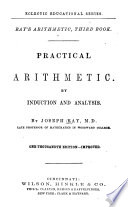 | Joseph Ray - Arithmetic - 1857 - 348 pages
...U. States, is regarded THE LEGAL RULE FOR PARTIAL PAYMENTS. li When partial payments have been made, apply the payment, in the first place, to the discharge of the interest then due. " If the payment exceeds the Int., the surplus goes toward discharging the principal, and the subsequent... | |
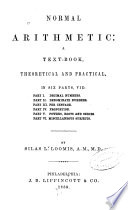 | Silas Lawrence Loomis - Arithmetic - 1859 - 324 pages
...the payments. 290. RULE OF THE SUPREME COURT OF THE UNITED STATES, AND OF THE STATES GENERALLY. I. " The rule for casting interest, when partial payments...place, to the discharge of the interest then due." II. "If the payment exceeds the interest, the surplus goes towards discharging the principal, and the... | |
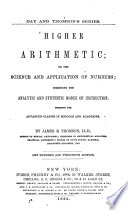 | James Bates Thomson - Arithmetic - 1860 - 440 pages
...for computing the interest adopted by the Supreme Court of the United States, is the following. I. " The rule for casting interest, when partial payments...place, to the discharge of the interest then due. II. " If tJte payment exceeds Ike interest, the surplus goes towards discharging the principal, and... | |
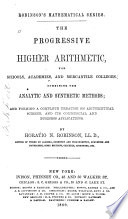 | Horatio Nelson Robinson - Arithmetic - 1860 - 444 pages
...where partial payments have been made, the Supreme Court of the United States has decided that, I. ''The rule for casting interest when partial payments...place, to the discharge of the interest then due. II. " If the payment exceeds the interest the surplus goes towards discharging the principal, and the... | |
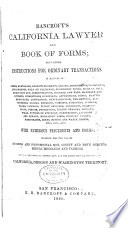 | David Price Belknap - Forms (Law) - 1860 - 778 pages
...prescribed in the case of Bacchus v. Minor, 3 Cal., 231, as follows: The rule for casting interest where partial payments have been made, is, to apply the...first place to the discharge of the interest then due ; if the payment exceeds the interest, the surplus goes toward discharging the principal, and the subsequent... | |
 | James De Fremery - Mortgages - 1860 - 118 pages
...Packard, Admin., October T., 1859. b It may be here stated that the rule for casting interest, where partial payments have been made. is to apply the payment...first place to the discharge of the interest then due; if the payment exceeds the interest, the surplus goes towards discharging the principal, and the subsequent... | |
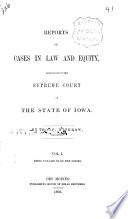 | Iowa. Supreme Court - Law reports, digests, etc - 1860 - 688 pages
...John. Ch. 13 ; and is this : " When partial payments have been made, such payments are to be applied, in the first place, to- the discharge of the interest then due. If the payment exceeds the interest, the surplus goes towards discharging the principal, and the subsequent... | |
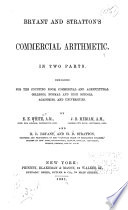 | Emerson Elbridge White - Arithmetic (Commercial), 1861 - 1861 - 348 pages
...Supreme Court of the United States, and may therefore be called the TTNITED ST-A-TES RULE. ART. 104. Apply the payment in the first place to the discharge of the interest then due ; if the payment exceeds the interest, the surplus goes toward discharging the principal, and the subsequent... | |
 | Benjamin Vaughan Abbott, Austin Abbott - Law reports, digests, etc - 1864 - 808 pages
...stating the time for which the rate is to be computed, a year is intended. 1 Rev. Stai., 773, § 10. 137. The rule for casting interest, when partial payments...place, to the discharge of the interest then due. If the payment exceeds the interest, the surplus goes towards discharging the principal, and the subsequent... | |
 | Benjamin Vaughan Abbott, Austin Abbott - Law reports, digests, etc - 1864 - 790 pages
...Vt., 26 ; Robinson t>. Doolittle, 12 Id., 246 ; HUlyerz.Vaughau, 1 /. J. ManA., 68*. terest, the rule is to apply the payment, in the first place, to the discharge of the interest then due. If the payment exceeds the interest, the surplus goes towards discharging the principal, and the subsequent... | |
| |